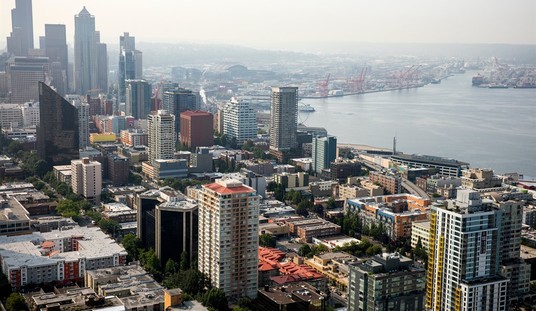Last Friday I wrote that the media had missed an important component of the new unemployment figures — a minimum-wage hike that increased entry-level wage costs to employers by as much as 28%. Yesterday, Jerry Bowyer agreed with me, and the chief economist of the BenchMark Financial Network accused the media of deliberately ignoring the cause:
Ask yourself a few questions: Why did unemployment surge at a time when unemployment compensation claims are historically low? More to the point, how could unemployment spike this much without a coinciding spike in corporate lay-offs?
The answer to all of these questions is same: because very few people lost jobs last month. This huge jump in the size of the unemployed comes from new entrants to the economy – hundreds of thousands of them. In short, well over 600,000 people who were not job seekers in April became job seekers in May. And who starts looking for work at the end of Spring? That’s right – students. Hundreds of thousands of students are looking for work right now, and they’re not finding it.
Congress is to blame. Last year Congressional Democrats (along with some Stockholm-Syndromed Republicans) passed the Fair Minimum Wage Act of 2007, which started a phased hike of the minimum wage from $5.15 an hour to $7.25. Free market economists warned them that this would increase unemployment – that rapid increases in unemployment compensation hit teens and minorities the hardest. But the class-warriors are running the people’s house now, and they would hear none of that, so they took to the floor, let loose the dogs of demagoguery, and saddled America’s pizza parlors, municipal swimming pools, house painting businesses and lawn mowing services with a huge cost increase.
Who got hurt? Overwhelmingly, the job seekers who could not gain employment were teenagers and African-Americans. Those of us who argued against a minimum-wage increase had predicted that exact outcome.
Some commenters from Friday put the blame on the sharp increases in oil prices, but that primarily affects prices, not wages or jobs. It does have a secondary effect of reducing buying power through inflation throughout the consumer market, which means that retailers can’t afford to raise the price of goods now to help offset the increased labor costs that Congress imposed. If they can’t raise prices, then they have to cut costs instead, and that means hiring fewer workers in entry-level positions.
Bowyer points out an ironic twist on these results. The only organizations flush with cash this year and who need entry-level workers are political campaigns. At least a few of these unemployed people will likely end up working for the politicians who put them in that position, and who would make the situation worse in years to come. (via King Banaian)








Join the conversation as a VIP Member